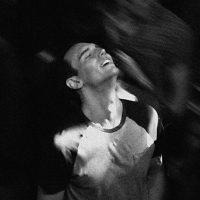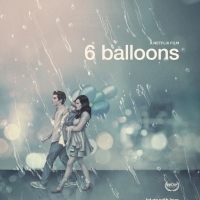If you had the choice to interact with a deceased loved one, would you take the opportunity? Directed by Hans Block and Moritz Riesewieck, Eternal You questions that notion, framing tech startups that utilize AI and ChatGPT to generate avatars and online versions of user’s relatives to communicate with after they have died. Delving further and addressing the moral and ethical implications of these types of software, the documentary spotlights both the users and makers of these platforms, in turn divulging society’s views on immortality and our future “digital remains”.
“Maintain your bond forever”, a headline that flashes immediately once entering YOV (You, Only Virtual)’s website. Powered by archival online communications and real time data, YOV’s digital representations act as a tool for fostering eternal communication between the living and the deceased. Founder Justin Harrison created YOV as a means to transcend interactions to the digital realm after losing his mother to cancer. So resolute in his belief in the company that he sold his house and signed divorce papers, it comes across as somewhat ironic that his digital relations seem to overtake his current physical ones. Taking the stance of the deceased, it’s also worth arguing how much of their virtual choices and data actually constitute an accurate representation of who they really were as a living, breathing individual.
Throughout Eternal You, users cite the apps as a means to heal, to harness their grief and provide comfort in times of immense loss. “It really felt like a gift, like a weight had been lifted that I’d been carrying for a long time”, cites Joshua Barbeau, staying up all night to chat with his high school fiancée with the use of Project December. A mother gets invited as a guest on a Korean reality show, Meeting You, to have one final reunion with her daughter in virtual reality, wherein her last memories and conversation were deeply regretful. A clip from the interaction went viral online, splitting viewers' reactions as incredibly divisive; are tools such as these a way to fulfill happiness and provide closure? Or are they capitalist tools aimed at manipulating your emotions and your wallet? If consumers aren’t forced into using these platforms, shouldn’t they have the option to use them at their own free will?
During the documentary, I couldn’t help but wonder what this says about our fundamental views on traversing grief, the myriad ways in which we emotionally heal as well as the stark uncertainty we’re faced with when encountering death. “AI has become a modern form of transcendence”, states sociologist Sherry Terkle, our way of twisting religion and its answers into a more contemporary form of relief. While grief is undoubtedly a fluctuating process that differs from one individual to the next, it’s difficult to deny that grasping onto external and monetary means to control what happens after leaving this mortal plane leads us to succumb to capitalist notions towards the fear and avoidance of death, diminishing humanity’s embrace for meaning in this finite life we get to call our own.
You can purchase an online ticket to watch ETERNAL YOU via Sundance Film Festival 2024 here.





